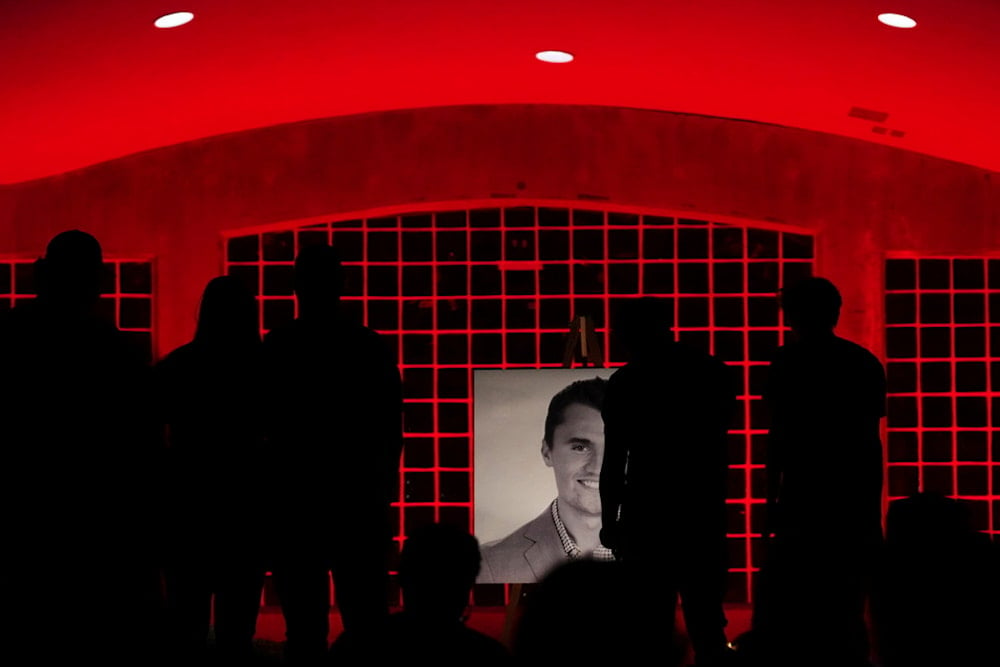Civil war talk surges after Charlie Kirk shooting: NYT
After the shooting of Charlie Kirk in Utah, mentions of "civil war" on social media skyrocketed, with right-wing politicians, media figures, and influencers amplifying divisive rhetoric that experts warn could normalize threats and violence.
-

People pay their respects during a vigil for Charlie Kirk, the CEO and co-founder of Turning Point USA who was shot and killed, Thursday, Sept. 11, 2025, in Orem, Utah (AP Photo/Lindsey Wasson)
The fatal shooting of conservative influencer Charlie Kirk in Utah has triggered a surge of online calls for civil conflict, with the phrase "civil war" dominating discussion across major platforms.
Data reviewed by The New York Times shows mentions of the term on X spiked dramatically in the aftermath of the incident, rising from a usual daily average of about 18,000 to more than 129,000 on Wednesday, and surpassing 210,000 the following day. Posts circulated far beyond X, reappearing on Truth Social, Instagram, and TikTok.
Fringe Voices Mainstream
Many of the calls came from high-profile figures on the American right. Infowars founder Alex Jones, LibsofTikTok creator Chaya Raichik, and internet personality Andrew Tate were among those who embraced the language. Tate wrote simply, "Civil war," in a post that drew more than 16 million views.
The rhetoric was echoed by elected officials as well. Wisconsin Republican Derrick Van Orden asserted online that "The left and their policies are leading America into a civil war. And they want it." Other lawmakers, including Georgia's Marjorie Taylor Greene, stopped short of using the phrase but called for dramatic action, saying she was "praying that this country rises up and ends this."
The divisive tone extended to X's owner, Elon Musk. "If they won't leave us in peace, then our choice is fight or die," he posted, a message seen more than 1.7 million times and endorsed by tens of thousands.
Civil War Rhetoric
Researchers warn that the normalization of such language carries risks. Jared Holt of Open Measures, which tracks online influence campaigns, cautioned that the phrase is no longer relegated to the political fringe. "The real risk," he explained, "is that it creates a permission structure for threats and violence against perceived political enemies."
Patterns of civil war talk on social media have appeared before, often after contentious national moments involving Donald Trump. Spikes followed the FBI's 2022 raid on Mar-a-Lago and the failed assassination attempt on Trump at a Pennsylvania rally in 2024.
By Thursday evening, some voices sought to cool the discourse. David Brody of the Christian Broadcasting Network wrote that while the tragedy raised fears of unrest, "We've got to be praying like we've never prayed before."
Read more: US political violence hits highest level in decades, Bloomberg says

 3 Min Read
3 Min Read










